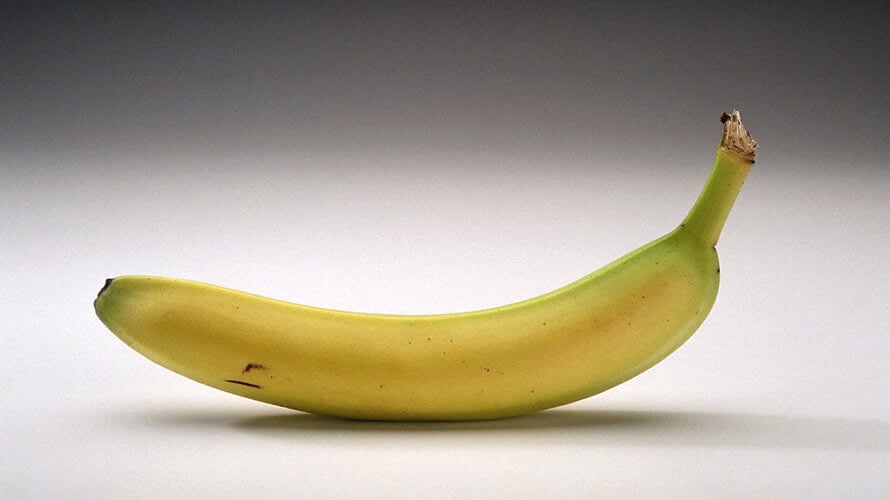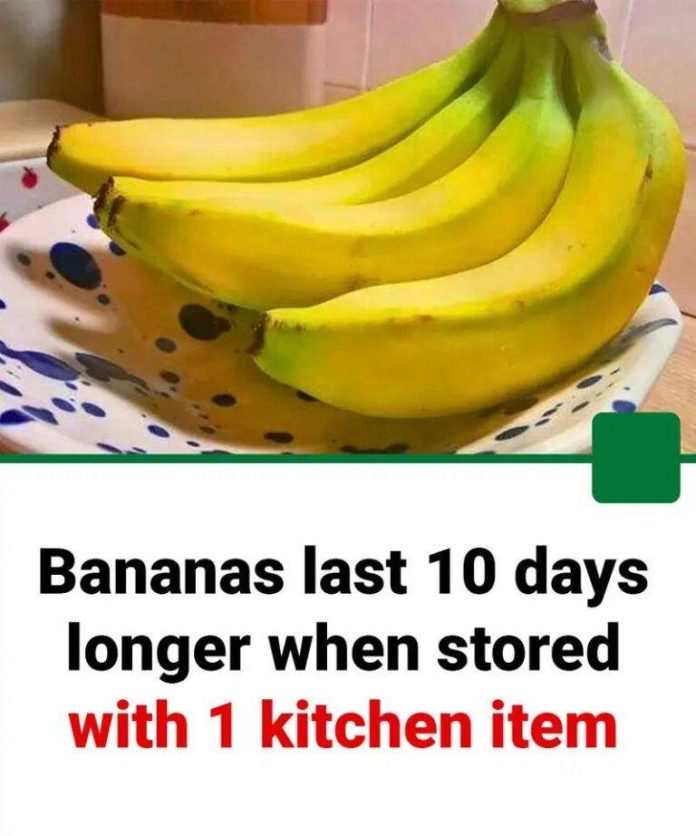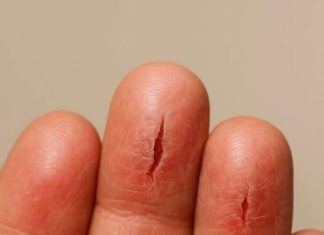Bananas are one of the most popular fruits in the world sweet, nutritious, and perfect for quick snacks or smoothies. But their biggest drawback is how quickly they ripen. Sometimes, a bright yellow bunch can turn spotty and brown in just two or three days. Luckily, there’s a simple storage trick that can make bananas stay fresh and firm for up to ten days and it involves pairing them with one everyday item.
The Science Behind Banana Ripening
To understand how to slow down banana ripening, it helps to know why it happens so fast. Bananas release ethylene gas, a natural plant hormone that triggers fruit ripening. When bananas sit close together, the concentration of ethylene increases, speeding up the process. Warm temperatures and moisture also contribute, breaking down starches into sugar and softening the fruit. By managing exposure to ethylene and controlling temperature, you can delay the ripening process significantly. That’s where a clever kitchen trick comes in. The One Item That Helps Bananas Stay Fresh.

The secret? Plastic wrap or cling film.
By wrapping the stems of your bananas tightly with plastic wrap, you can trap the ethylene gas that escapes from the stem ends—the main source of the hormone. This slows the release of ethylene into the air, reducing the rate of ripening. When stored this way, bananas can remain firm and yellow for up to 10 days, depending on room temperature and humidity. For even better results, separate the bananas from the bunch before wrapping each stem individually. This further limits the spread of gas from one banana to another, allowing you to enjoy them at the perfect level of ripeness, one by one.
Best Storage Practices
Along with using plastic wrap, the following steps can help extend the freshness of your bananas:
- Keep them cool but not cold. Bananas should be stored at room temperature, ideally around 12–14°C (55–57°F). Refrigeration can cause the peel to darken prematurely, though the fruit inside will still be fine.
- Hang them up. Using a banana hanger prevents bruising and reduces contact surfaces, slowing decay.
- Avoid direct sunlight. Heat accelerates ripening, so keep bananas in a shaded, well-ventilated spot.
- Store away from other fruits. Apples, avocados, and tomatoes also emit ethylene gas, which can quicken banana ripening.
What If Bananas Are Already Ripe?
If your bananas are ripening faster than you’d like, move them to the refrigerator. The skins may darken, but the fruit inside will remain sweet and firm for several more days. Alternatively, you can peel, slice, and freeze ripe bananas for later use in smoothies, banana bread, or desserts.

Why This Trick Works
Wrapping banana stems with plastic prevents most ethylene gas from escaping and spreading through the bunch. Because ethylene is a key ripening trigger, slowing its release delays the chain reaction that causes bananas to soften and brown. This is a low-cost, low-effort method that anyone can do at home — and it’s surprisingly effective.
Final Thoughts
Bananas may be naturally fast-ripening fruits, but with a little care, they can last much longer. The simple act of wrapping the stems in plastic wrap and keeping them away from other ethylene-producing fruits can stretch their shelf life to 10 days or more. It’s a small change that reduces waste, saves money, and ensures you always have fresh bananas ready to eat. So next time you bring home a bunch, grab that roll of plastic wrap—it’s the one household item that keeps your bananas fresher, sweeter, and perfectly yellow for days on end.

















